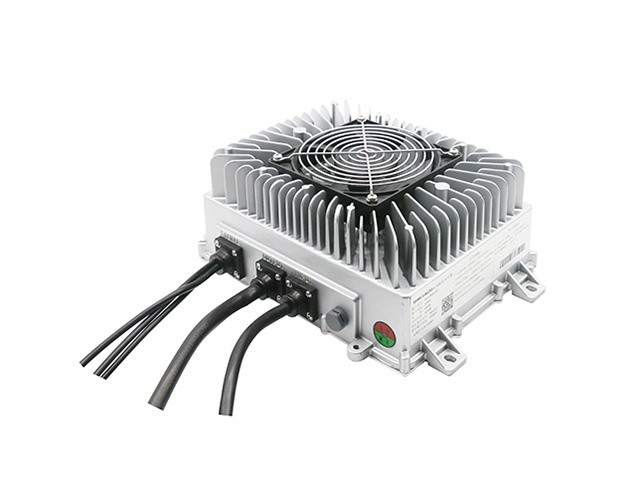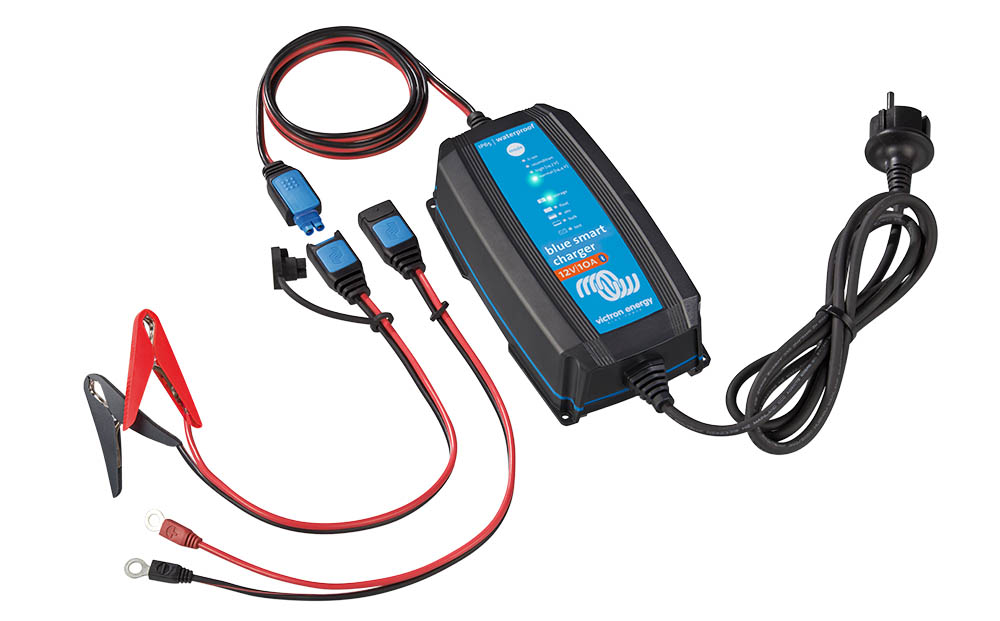- 25
- Nov
How Do Smart Battery Chargers Work?
Smart battery chargers are revolutionizing the way we charge our batteries. They bring a host of benefits, making charging easier, more efficient, and safer. Unlike traditional chargers, smart chargers adapt to the battery’s needs. They monitor the battery’s condition and adjust the charging rate accordingly. This means they can charge batteries faster, extend their lifespan, and prevent overcharging. In this article, we’ll explore the advantages of smart battery chargers and how they work. Understanding their functionality helps us appreciate the technology that keeps our devices powered up efficiently and safely. Let’s start to know about smart battery chargers!
What is a smart battery charger?
A smart battery charger is a handy device that intelligently charges batteries. It adjusts the charging process based on the battery’s condition. This means it can detect how much charge a battery needs. Then, it delivers just the right amount of power. This smart approach prevents overcharging. Overcharging can damage batteries, reducing their lifespan. Smart chargers are also energy-efficient. They stop drawing power once the battery is full. This feature saves electricity and is better for the environment.

How do smart battery chargers work?
Smart battery chargers are quite the game-changers in the world of battery technology. They work in a sophisticated way to ensure your batteries charge safely and efficiently. Let’s see how they operate:
Initial Assessment
Smart chargers first assess the battery’s current state. They check its voltage and capacity to understand how much charge it needs. This step is crucial for tailoring the charging process to the battery’s specific needs.
Bulk Charge Phase
The charger starts with the bulk charge phase. Here, it delivers a high current to quickly charge the battery to about 70-80% of its capacity. This phase is fast, efficiently bringing the battery to a significant charge level.
Absorption Phase
Next is the absorption phase. The charger supplies power at a lower rate during this stage.
It slowly tops off the remaining 20-30% of the battery’s capacity. This careful approach helps prevent overcharging, which can damage the battery.
Float or Maintenance Phase
The final stage is the float or maintenance phase. The charger provides a very low current, just enough to keep the battery full without overcharging it. This phase is essential for maintaining the battery’s health over time.
Adaptive Charging
Smart chargers adapt their charging method based on the battery’s condition and type. For example, they charge a deeply discharged battery differently than one that’s only partially discharged.
Safety Features
Smart chargers come with built-in protections against overcharging, overheating, and short-circuiting. These safety mechanisms make them much safer compared to traditional chargers.
Versatility
These chargers often have multiple charging modes for different types of batteries, like lead-acid, lithium-ion, or nickel-cadmium. This versatility means you can use one charger for various devices.
Energy Efficiency
Smart chargers are environmentally friendly. They reduce energy consumption by stopping the charging process once the battery is full. This feature saves electricity and minimizes the risk of battery damage due to overcharging.
Smart battery chargers offer a sophisticated and efficient way to charge batteries. They adjust their charging process according to the battery’s needs, come equipped with safety features, and are versatile for different battery types.
Pros and cons of smart battery charger
Smart battery chargers have become increasingly popular due to their advanced technology and convenience. Let’s explore their pros and cons in detail:
Pros of Smart Battery Chargers
Intelligent Charging: They automatically assess and adjust the charging process based on the battery’s needs. This intelligent charging maximizes battery life and efficiency.
Prevention of Overcharging: Smart chargers prevent overcharging, which can significantly damage batteries. They automatically stop charging once the battery is full, ensuring safety.
Energy Efficiency: These chargers are energy efficient. They reduce electricity usage by stopping the charging when the battery is full.
Versatility: They are versatile and can charge various types of batteries, from lead-acid to lithium-ion. This feature means you can use one charger for multiple devices.
Safety Features: Smart chargers come with built-in safety features like overcharge protection and short-circuit prevention. These features make them safer compared to traditional chargers.
Extended Battery Life: By preventing overcharging and deep discharging, they help extend the overall life of batteries. This benefit means fewer battery replacements over time.
Easy to Use: They often feature user-friendly interfaces with clear indicators for charge status. This ease of use makes them accessible to everyone.
Environmental Benefits: By optimizing charging and reducing energy waste, they are more environmentally friendly. This aspect is crucial in today’s energy-conscious world.
Cons of Smart Battery Chargers
Higher Cost: Smart chargers are generally more expensive than traditional chargers. For some customers, this upfront expense may be a deterrent.
Complexity for Simple Needs: For basic charging needs, their advanced features might be unnecessary. This complexity can be overkill for users who just need a simple charge.
Dependency on Power Sources: They require a stable power source to function. This requirement can be a limitation in areas with unreliable electricity.
Technology Overload: For those not tech-savvy, the advanced features and settings might be overwhelming. This complexity can make them less user-friendly for some people.
Smart battery chargers offer a range of benefits like intelligent charging, energy efficiency, safety features, and environmental friendliness. However, they also come with downsides like higher costs, potential complexity, and compatibility issues.
What to consider when buying smart battery charger?
When buying a smart battery charger, it’s essential to understand its capabilities. Smart chargers adjust the charging process based on the battery’s condition, which extends its life. They detect voltage and can prevent overcharging. This feature is crucial for maintaining your battery’s health. Look for chargers that offer multiple charging modes for different battery types.
Compatibility and Versatility
Check the charger’s compatibility with various battery types. Some chargers work with lead-acid batteries, while others suit lithium-ion types. It’s wise to choose a versatile charger that can handle multiple battery types. This flexibility is handy, especially if you own different devices or vehicles. Also, consider the battery sizes the charger supports to ensure it meets your needs.
Safety Features
Safety is paramount. Look for chargers with built-in safety features like short-circuit, overheat, and overcharge protection. These features safeguard both the charger and the battery. Chargers with auto-shutoff capabilities are excellent, as they stop charging once the battery is full. This function prevents potential hazards and enhances the charger’s durability.
Portability and Ease of Use
If you need a charger on the go, portability is key. Compact and lightweight chargers are convenient for travel. Additionally, ease of use matters. User-friendly interfaces with clear indicators and simple controls make charging hassle-free. LED displays or audible alerts help monitor the charging process.
Price and Warranty
Finally, consider the price and warranty. While cheaper options might be tempting, quality often correlates with price. Invest in a reliable charger from a reputable brand. A good warranty offers peace of mind, covering potential malfunctions or defects. Always read warranty terms carefully to understand what’s covered.

FAQs
What Makes Smart Battery Chargers Different from Regular Chargers?
Smart battery chargers stand out because they’re much more intelligent than regular chargers. They don’t just pump power into your battery. Instead, they assess the battery’s current condition and adjust the charging process to match. This smart approach means they charge your battery in the most efficient way possible. They avoid overcharging and undercharging, which can harm batteries.
Can Smart Battery Chargers Charge Any Type of Battery?
Smart battery chargers are quite versatile, but they’re not one-size-fits-all. Most are designed to charge specific types of batteries, like lead-acid, lithium-ion, or NiMH. Before buying one, it’s crucial to check if the charger is compatible with your battery type.
